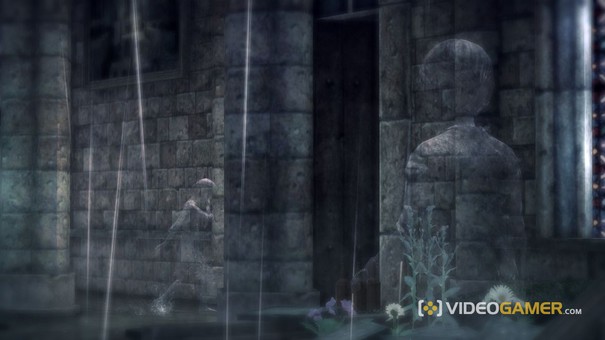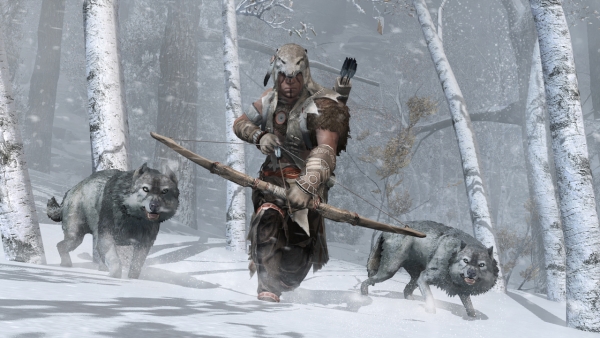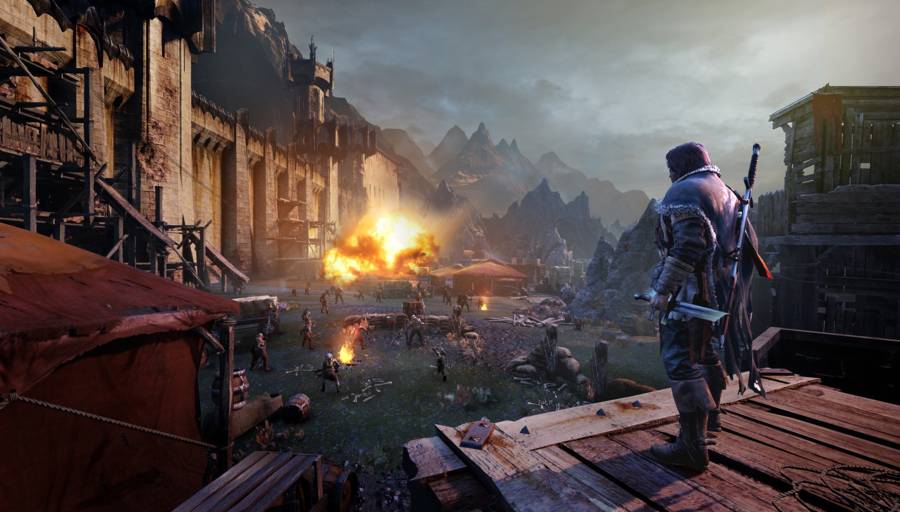

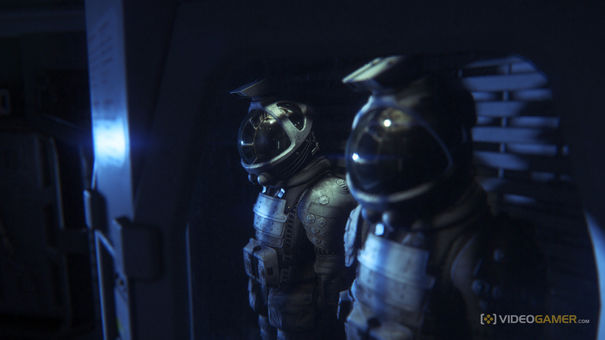

VideoGamer: You're coming off the back of Aliens: Colonial Marines, a game that suffered horribly on release. How much does that affect your project?
Jonathan Court: We looked at a lot of feedback on the forums on what people were responding to after ACM, and we saw a very common thread: that people were talking about the game we were making. It seems to be something that people have wanted for a long time, and were frustrated that no one has yet delivered it. We found it really interesting to read that stuff.
VG: So how is it different?
JC:We're so different to anything that's come before, we're treating the Alien very, very differently, treating it as a real meaningful Alien experience in the game, not treating the Alien as fodder, which a lot of the games previous to us have done. So we're excited, we think we're standing alone, producing a really great, very different experience.
Chris Lindop: As a team, the fact there was this incredibly strong reaction to ACM, people were that passionate about the quality bar, and they wanted to have an experience set in the IP. That was kind of reassuring in the sense that there was an audience out there that was still to be served, and it kind of reinforced...it's a very tough decision to go this route.
It seems obvious from the outside to go: 'Well, Alien, survival horror', those are two things that should really be together, why has no-one done that before. The answer is because it's very, very hard. [Laughs]. The easy route to take is to go: 'let's just build a theme park ride.' Very heavily scripted, loads of schlock and jumps scares, and it's predictable, you build that. By trying to build a system or a systematic entity, a creature that is reactive, then you're in this kind of life and death struggle and it's not predictable, that's a very risky thing to do. So to have that kind of reaction [it shows] that people really want that kind of experience - we're on the right path.
VG:That's the problem with an Alien game: how do you keep surprising people?
CL: The funny thing is, when you look at the first film, the Alien doesn't move that much. There's a lot of short cuts to generate movement, and [the cast] kind of walk into it. People are aware of what the Alien should be, because they combine elements of the first and second movies: that it's lethal, fast, agile, dangerous, there's no way of talking to it. But no-one has really experienced that, because when the Alien is transformed into game form, it's suicidal Russian infantry, hurling themselves over the barricades at them with you mowing them down.
So the mystery, or the journey the player is going on, is [one influenced by the films], hunting other people. No experience of trying to survive in the environment where he's hunting specifically for you. It's funny how that sense of disturbed familiarity...
JC: We know [how the Alien] works, and it's scaring us every day. So it's a strong experience.
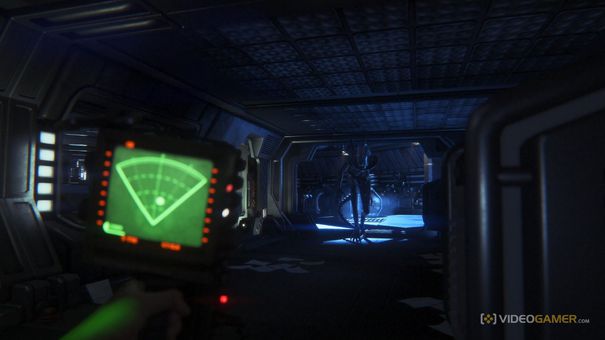
VG: Isn't it a struggle to keep that interesting over a longer period of time, though?
CL: As shorthand, we talk about [the game] in terms of a Heart of Darkness journey: you go to a place with a fairly clear set of objectives, the story is taking you there, and as you go down river, things get weirder and more out of control, and by the time you reach wherever you're going, things have already gone clearly wrong. So we're presenting a series of mysteries. That sounds like we're trying to avoid the answer. Specifically, the most effective thing you can deliver in a game like this is a significant set of unknowns.
So as the player's character has never seen one of these things before, nor most of the other people they're with, we as the audience have a certain degree of awareness of how, mechanically, the Alien works. There's an egg, a Facehugger...as you start investigating, the mysteries in player's minds are 'how is it here?', 'What's ,going on here?' We're really cagey about ruining too many of the surprises.
VG: The movie is two hours, though. Why not something similar here?
JC: We're not making a game with that level of intensity for the whole game. What we've got is a you arriving at a station - it has a massive variety of locations - and we have a strong story that draws you through those locations, which gives you a varied experience. That space station is effectively in chaos.
CL:It doesn't go straight into its most intense level straight away. There's a lot in the game that's defined by the choices the player makes moment to moment, passing through the world. A lot of your choices and time are about learning to manipulate the world, to use elements in the world to help your survival. As you scrabble to survive and surface to moments of calm, and then go back out, risking travelling again, it's tension and drama. The risk of his presence is always hanging above the situation. The station is populated with other people who are trying to survive: ordinary people in an extraordinary situation, fundamentally unequipped to deal with it.
People react in different ways. Some may be useful to you or help you, others you might not be sure you want to trust them. Because people do desperate things at desperate times. So the variation of that experience and the presence of the threat, that's what drives the game for [a prolonged] period of time. Most of the characters in the original film were people creeping around, not sure what they were dealing with or what they'd see next. Not only the Alien, but also the environment being unreliable and as dangerous to navigate.
VG: So it comes down to how the player approaches a situation, then, rather than a scripted experience?
CL: Survival horror has, over the last five years, mutated into action-adventure, having loads of gunfights etc. We want to go back to classic survival horror, where surviving was victory - that was the objective. That was one of the things the films did very well: the first and second film both have the same message: technology won't save you. And over reliance on tech will be your downfall.
It's a similar thing here. Your instincts will be more reliable to you than hoping tech will save you and be able to deal with [the situation].
Having that mirror of other people on the station making their choices is to anchor your thought process: 'what am I doing, how am I choosing to do things?' And every encounter is essentially a set of choices. There's not a single set or prescribed solution to that encounter. There are very different solutions.
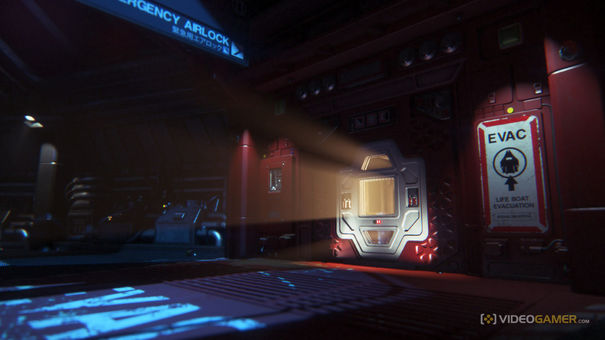
VG: So it's largely about the choices you make?
CL: One of our biggest challenges was that the player is going to learn to survive, they're going to get better at survival. We want them to be able to read their enemy, to allow that instinct to take control. And as the game progresses, they're going to feel more confident. One of the counterpoints to that is a lot of the devices, tricks or tactics you try have a lifespan with the Alien. They'll only work a certain number of times before he becomes wise, which keeps the player on their toes. But what we don't want to do is have an experience where at a certain point you say 'OK motherf**kers, it's now revenge time', where you start wasting loads of Aliens, because it devalues the point of our effort. When we first announced the project we were sitting in our little bubble, asking how many people are going to notice there's no 's'. Because it's kind of important to us that the singular is a deliberate choice, and at the end we want the victory for the player to be that they survived the game, and it'll only feel like a victory if he's as dangerous at the beginning as he was at the start.
JC: This game is not a shooter. You can get weapons, but it's not about running through the game shooting.
VG: Do you ever think there's a danger you're getting too close to the source material?
CL: We do a lot of external testing, bringing that sanity check, because you are close to the material. The other thing is that you take a kind of... you can easily get sucked into all that background material, and become a real subject expert on every twist and turn in the script, and what Alien 3 was meant to be. The simplest rule to follow is: it made it into the film, or it didn't. If it isn't in the film, then it's not something the audience should expect or rely on, so even when it comes down to talking about Amanda Ripley: she's in the DC of the second film, so she's in there, that story's there.
But if you start spiralling off into all the different script variations, to somebody that doesn't have that knowledge it'll seem abstract and weird and not relating to the film that they saw.
The other thing is that's there's a certain purity to that storytelling, in the original film, that is worth not throwing away. The simplicity of it, which is actually really important, and you don't have to answer every question: sometimes it's better not to. We've even been there ourselves - we've been through our scripts and there were points where we were massively over-explaining ourselves, we don't need to. There's nothing wrong with a bit of mystery and suspense, so I think we've hit a good balance there. Although once you've seen that film so many times, you balance [intricate] detail with the craft of storytelling and game making, and you know when you're going to far and need to expedite it.
VG: So what else do you look at to ensure it stands as both an Alien experience and a game itself?
CL: Alien is grandaddy of all of that, it is the template for survival horror, really, and so when you're working with the original material, it's more frequent that you see its influence in other games and films rather than the other way around. When we saw a lot of the fan base talking about [the ideal] game, why can't anybody make it for us, it was funny that we were sat here focusing on exactly that. And so the thing about Amnesia, SlenderMan, going back to Resi, is that the artform is in the pacing and the tempo. If you overcook it… it's got to be the silence that is just as scary as the action, and you can't get better source material than the original film. It sets the template so well.
When you tell people the Alien is on screen for 12 minutes, they're [surprised]. He dominates the film, everything is about worrying about him. So it's all about controlled exposure.
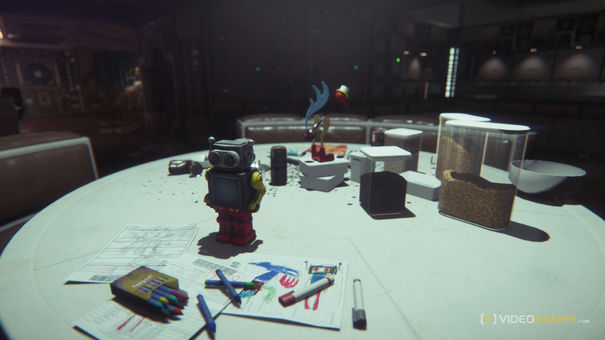
VG: You sound very confident with what you have. When did you know you had 'it'?
JC: In the games industry you tend to rough things out really early, and judge the value of it and the direction of it as best you can. The problem with the Alien is that that doesn't really work, and it wasn't until we'd committed to the models, animation, lighting, the environments, VFX, the sound... until we had all those components together we couldn't judge where we were. We all remember this one meeting: we were doing a daily meeting to look at the Alien, as it's the most important thing in our game, and finally we all jumped out of our skins and it was like well, this is excellent. Until that point we'd had to have so much faith in ourselves that we were going to be able to pull this off, and it was frustrating that until literally everything was together it didn't work.
CL: I came here to work on this project, like a lot of guys do. There's an incredible risk [for the publisher], because it may be two years before you get anything usable.
